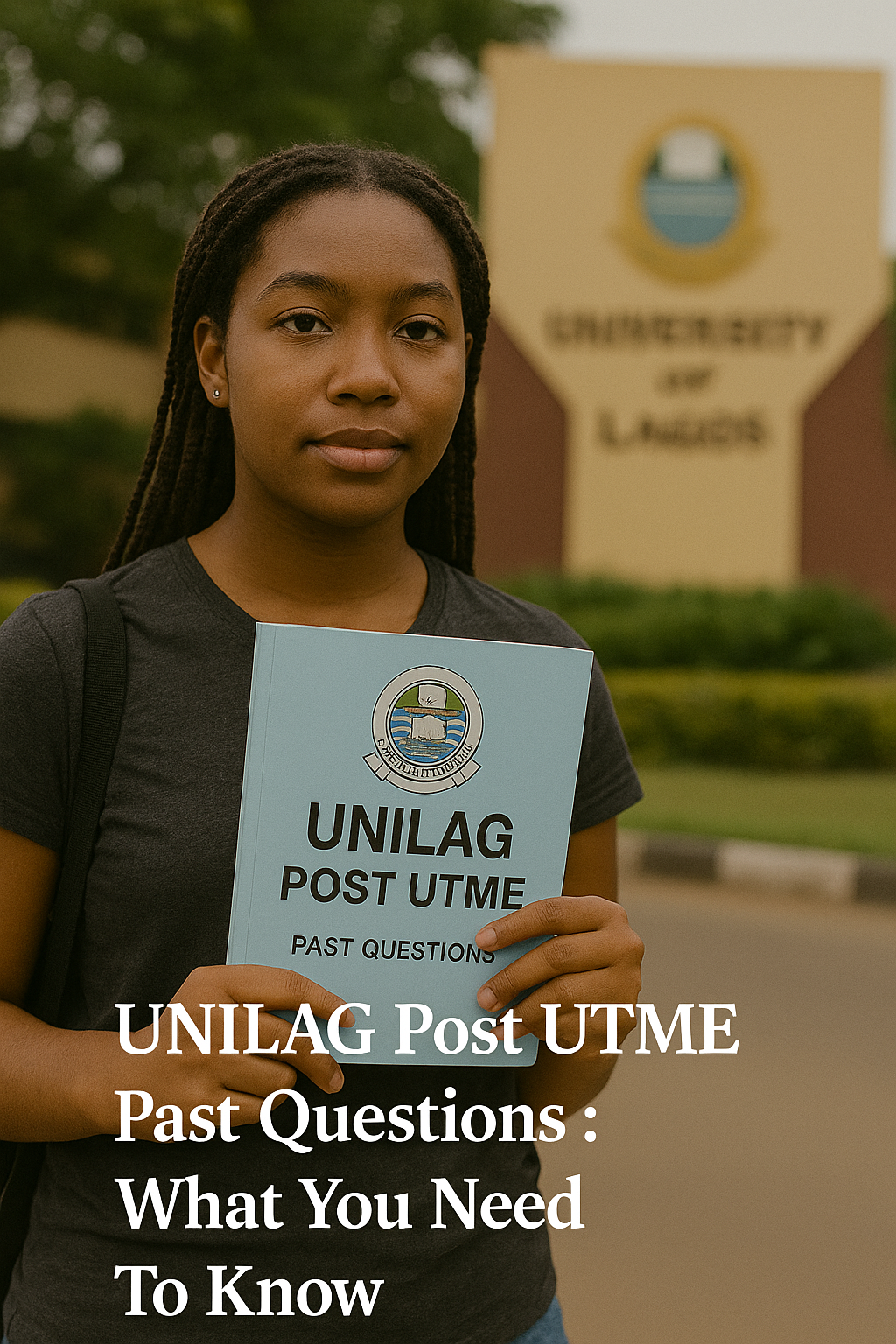If you want to pass the UNILAG Post UTME, you need to prepare well. One of the best ways is by using past questions.
In this post, you’ll learn what the UNILAG Post UTME past questions PDF is, why it helps, what’s inside, and where to get it.
Contents
- What Is the UNILAG Post UTME Past Questions PDF?
- Why You Should Use UNILAG Past Questions
- What Subjects Are Covered?
- Sample Past Questions
- How Many Years of Past Questions Do You Need?
- Is the PDF Free?
- How To Know If a Past Question Is Real
- Where To Get UNILAG Past Questions PDF
- How To Use the Past Questions PDF
- UNILAG Post UTME Is Fast
- Can You Pass Without Past Questions?
What Is the UNILAG Post UTME Past Questions PDF?
It’s a file that contains real questions from past UNILAG screening tests.
These questions are grouped by year and subject. You can view them on your phone or laptop. You can also print them out.
Why You Should Use UNILAG Past Questions
UNILAG repeats questions. Many students say some questions came word-for-word from past years.
Practicing past questions:
- Helps you know the format.
- Builds speed and confidence.
- Shows you common topics.
- Helps you manage time.
If you want to score high, don’t skip it.
What Subjects Are Covered?
The past questions cover four main subjects:
- English Language
- Mathematics
- General Paper
- Your course subject (like Biology, Government, etc.)
Your own subjects depend on what course you’re applying for.
Sample Past Questions
Here are some real types of questions you may see:
English Language
Choose the correct option:
The man ____ to the market yesterday.
A. go
B. went
C. goes
D. gone
Answer: B
Mathematics
Find the value of x:
2x + 5 = 15
A. 4
B. 5
C. 6
D. 10
Answer: A
General Paper
Who is the current president of Nigeria?
A. Bola Ahmed Tinubu
B. Muhammadu Buhari
C. Goodluck Jonathan
D. Atiku Abubakar
Answer: A
How Many Years of Past Questions Do You Need?
You should get at least the last 5 to 10 years.
The more you solve, the better you’ll understand the pattern.
Some PDF files even group questions by subject and topic. That makes study easier.
Is the PDF Free?
Some websites offer free past questions, but many only share part of it.
If you want the full version with answers, you may need to pay a small fee (₦500 to ₦1500).
Make sure you get it from a trusted source.
How To Know If a Past Question Is Real
- It should match UNILAG’s question style.
- It must be short and straight to the point.
- Most questions should be 40 in total.
- There should be answers and explanations.
- It should cover recent years, not just old ones.
Avoid random files from unknown websites. Some of them contain fake or outdated questions.
Where To Get UNILAG Past Questions PDF
Here are safe ways:
- Educational blogs that focus on UNILAG.
- Trusted sellers on WhatsApp or Telegram.
- Jumia or Selar stores that list verified sellers.
- Some tutorial centers also give the PDF to students.
Before you pay, ask for a sample page.
How To Use the Past Questions PDF
Don’t just read it like a book. Practice with it daily.
- Set a timer. Give yourself 30 minutes for 40 questions.
- Write your answers down.
- Check your score.
- Review what you got wrong.
- Repeat questions until you can get them all right.
If possible, print it out and solve on paper.
UNILAG Post UTME Is Fast
The test lasts only about 30 minutes. You need to answer fast and stay focused.
This is why past questions help. You’ll get used to the pressure before the real exam.
Can You Pass Without Past Questions?
Yes, but it’s harder. Most students who score high use past questions daily.
Post UTME isn’t just about knowledge. It’s also about time and confidence.
Final Tips
- Get the latest version of the PDF.
- Start using it early, not days before the test.
- Combine it with your JAMB notes.
- Focus more on your course subject and English.
- Join a WhatsApp or Telegram group for updates.
Conclusion
The UNILAG Post UTME past questions PDF is not just useful — it’s a must. If you want to pass, start preparing with real questions.
Get a good copy, study smart, and stay calm. With practice, you’ll score high and gain admission.
Don’t wait till the last minute. Start now.



